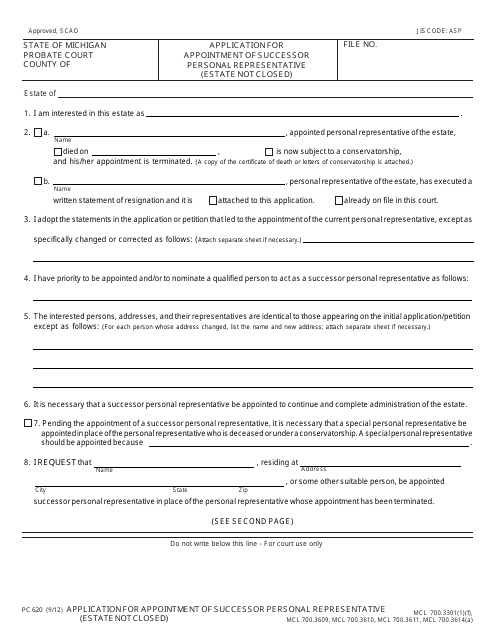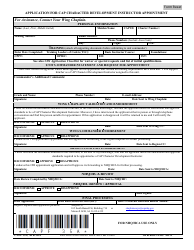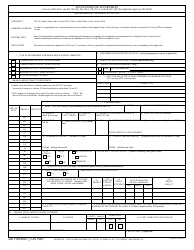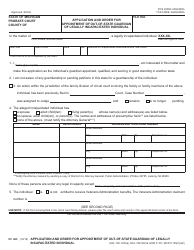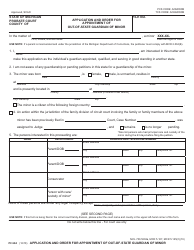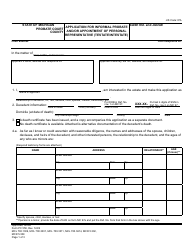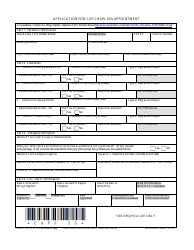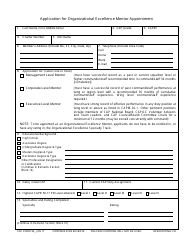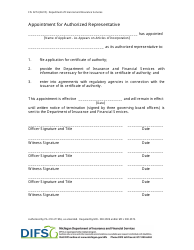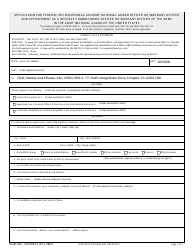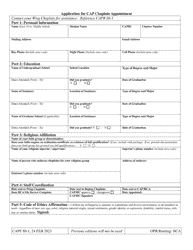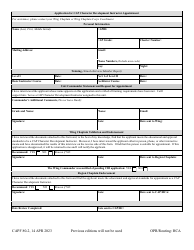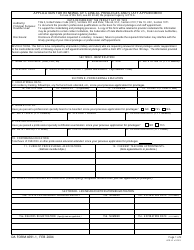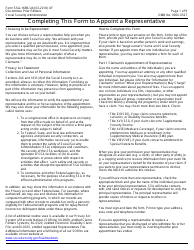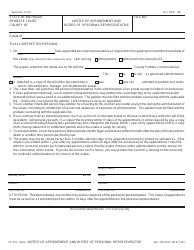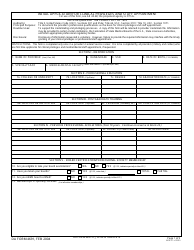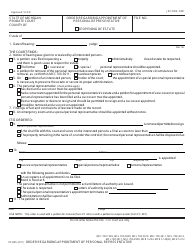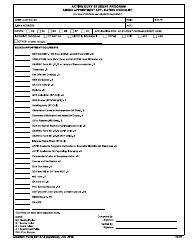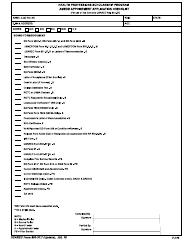Form PC620 Application for Appointment of Successor Personal Representative (Estate Not Closed) - Michigan
What Is Form PC620?
This is a legal form that was released by the Michigan Probate Court - a government authority operating within Michigan. As of today, no separate filing guidelines for the form are provided by the issuing department.
FAQ
Q: What is the PC620 Application for?
A: The PC620 Application is for the appointment of a successor personal representative for an estate that is not closed.
Q: Who can file the PC620 Application?
A: Any interested party, such as a beneficiary or creditor, can file the PC620 Application.
Q: What information is required on the PC620 Application?
A: The PC620 Application requires information about the deceased person, the proposed successor personal representative, and the current status of the estate.
Q: Are there any filing fees for the PC620 Application?
A: There may be filing fees associated with the PC620 Application. You should check with the probate court for the applicable fees.
Q: Is legal representation required to file the PC620 Application?
A: While legal representation is not required, it is recommended to consult with an attorney to ensure compliance with all legal requirements.
Q: What happens after filing the PC620 Application?
A: After filing the PC620 Application, the probate court will review the application and may schedule a hearing to consider the appointment of the successor personal representative.
Q: Can the PC620 Application be contested?
A: Yes, interested parties have the right to contest the PC620 Application if they have objections to the appointment of the proposed successor personal representative.
Q: How long does it take to get a decision on the PC620 Application?
A: The timeline for a decision on the PC620 Application can vary depending on the specific circumstances of the case and the workload of the probate court.
Form Details:
- Released on September 1, 2012;
- The latest edition provided by the Michigan Probate Court;
- Easy to use and ready to print;
- Quick to customize;
- Compatible with most PDF-viewing applications;
- Fill out the form in our online filing application.
Download a fillable version of Form PC620 by clicking the link below or browse more documents and templates provided by the Michigan Probate Court.
